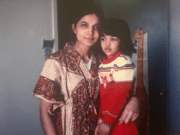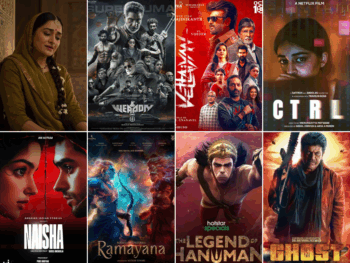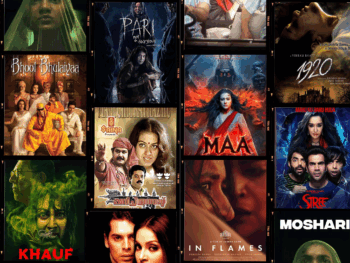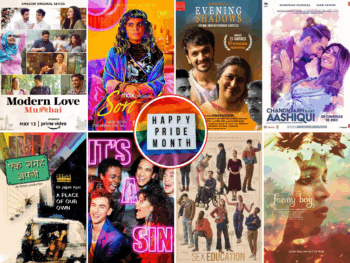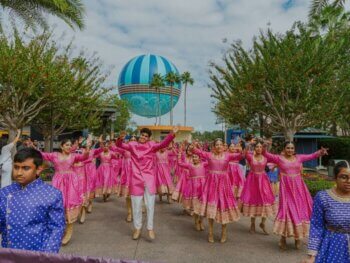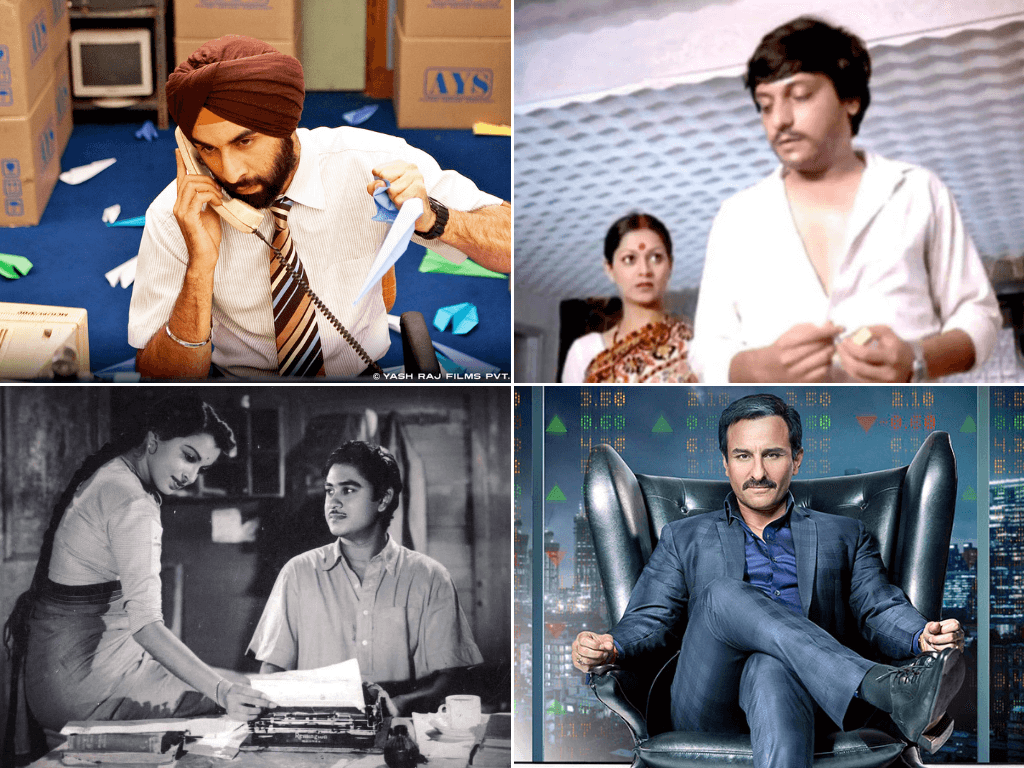
Does Bollywood Accurately Portray Financial Struggles of India’s Working Class?
Entertainment Sep 29, 2024
Indian films have long been a mirror to society, reflecting the nation’s economic landscape and work culture through powerful storytelling. From the plight of a farmer in Do Bigha Zamin to the aspirations of a corporate trainee in Rocket Singh: Salesman of the Year, cinema in India captures the myriad ways people navigate the same economic environment. These narratives reveal that while the economy serves as a common backdrop, how individuals engage with it is unique, and shaped by their circumstances, goals, and resilience.
Exploring these cinematic stories allows us to appreciate the diverse nuances of each lifestyle and understand how people carve out their place within an ever-evolving economic context. Films like Lagaan vividly depict the economic struggles faced by rural communities, where livelihoods hang in the balance, while urban tales like Wake Up Sid explore the existential crises of the more privileged. Far beyond entertainment, these films act as cultural chronicles, offering insight into how different people experience and respond to economic challenges. The lived realities of a farmer, a factory worker, or a startup entrepreneur reveal just how diverse these economic experiences can be.
I came across this delightful cartoon by Satish Acharya on his Facebook page and couldn’t resist sharing it. Just for fun, enjoy this!

Consider Swades, a film that examines the stark divide between India’s rural and urban settings. It follows an NRI who returns to his homeland and encounters the severe challenges of village life — from the scarcity of basic resources to the daily fight for survival. At the same time, the film underscores how innovation and determination can drive transformative change, suggesting that one’s experience within the economy is largely determined by personal choices, attitudes, and opportunities. In contrast, Gully Boy presents the relentless spirit of a rapper from the slums, dispelling the notion that success is only for the privileged. It demonstrates that ambition and tenacity can chart new routes to prosperity, even within stringent economic limitations.
Through such diverse narratives, Indian cinema offers a layered perspective on how various social classes interpret and adapt to the same economic conditions. While the broader economic forces impact everyone, the paths toward survival, contentment, and achievement differ vastly from one individual to another. This rich variety of stories reflects the endurance, innovation, and diversity of the Indian people, encouraging viewers to contemplate their relationship with the economy and their unique roles within it.
Let’s delve into Hindi-Bollywood films that portray the stark reality of our economy, not just in India but across the globe — films that capture the universal human struggle with money and survival.
Gharaonda – 1977
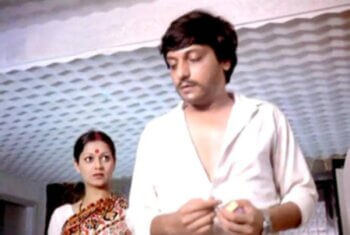
Gharonda is a 1977 Hindi drama film produced and directed by Bhimsain, exploring the economic struggles of a young couple, Sudip-Amol Palekar and Chhaya-Zarina Wahab, in Mumbai. Driven by their dreams of marriage and home ownership, they work tirelessly and save every penny, only to lose everything when a fraudulent builder vanishes with their hard-earned money, leaving them shattered and financially ruined.
Facing mounting despair, Chhaya accepts a proposal from their wealthy employer, Mr Modi-Shriram Lagoo, viewing it as a chance to secure her family’s future, while Sudip becomes increasingly disillusioned and contemplates shortcuts to escape their hardship. As time passes, he understands that true progress requires integrity and perseverance, ultimately deciding to rebuild his life without resorting to quick fixes.
The film highlights the harsh economic realities of Mumbai’s middle class, serving as a poignant reminder of the fragility of dreams and the dangers of misplaced trust in a city where survival is a constant battle.
Delhi Belly – 2011
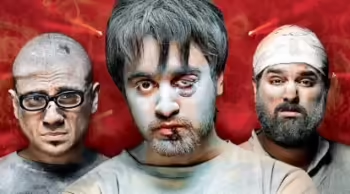
Directed by Abhinay Deo, Delhi Belly centres on three roommates, Imran Khan, Kunal Roy Kapur, and Vir Das who navigate a series of absurd and degrading situations while trying to make ends meet in the competitive media industry. Living in a run-down, smoke-filled apartment, their circumstances initially appear to be the usual struggles of young adults scraping by. But when a bizarre twist lands them in a dangerous crime syndicate’s crosshairs, their economic desperation turns chaotic.
Set against one of the most memorable soundtracks of the 2010s, Delhi Belly offers a sharp satire of the compromises and vices that its characters embrace in their fight for survival. It reflects the harsh reality of the financial struggle faced by the working class, capturing the spirit of a generation caught in the relentless grind of urban life.
The film’s bold humour and unfiltered portrayal of economic hardship have made it a cult classic, resonating with anyone who has faced the pressures of making a living in a world that seems determined to push them down.
Judaai – 1997
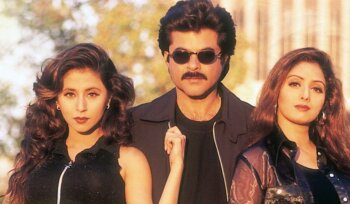
One of my and my brother’s favourite films, Judaai is a 1997 Hindi-language romantic drama directed by Raj Kanwar, featuring Anil Kapoor, Late Sridevi, and Urmila Matondkar in the lead roles. Unhappy with her husband Raj-Anil Kapoor’s modest earnings, Kajal-Sridevi yearns for a life of luxury beyond their means.
When a wealthy woman, Jahnvi-Urmila Matondkar, falls in love with Raj and offers Kajal Rs. 2 crore to allow their marriage, Kajal, tempted by the promise of wealth, accepts the deal and indulges in the comforts she has always desired. However, as she basks in her newfound riches, she begins to realize the emotional cost of her decision, understanding that financial gain cannot replace the value of true relationships.
The story underscores the tension between economic aspiration and the pricelessness of love, revealing the emptiness that can come from prioritizing money over human connections.
Rocket Singh: Salesman of the Year – 2009
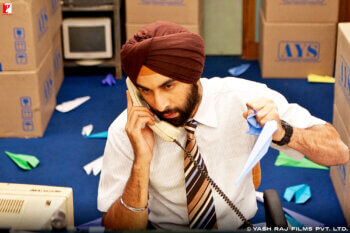
Rocket Singh: Salesman of the Year, directed by Shimit Amin and written by Jaideep Sahni, was produced by Aditya Chopra under the Yash Raj Films banner. Harpreet Singh Bedi-Ranbir Kapoor, a B.Com graduate with modest academic achievements, begins his career as a salesman at AYS, a large computer company marred by corruption. After facing humiliation for exposing unethical practices, he launches Rocket Sales Corporation with colleagues Giri and Koena Shaikh-Gauahar Khan focusing on genuine customer service. Their success threatens AYS’s declining sales, prompting a desperate buyout attempt by AYS’s MD, Sunil Puri.
Despite Rocket Sales’ eventual acquisition under duress, Harpreet’s principles are recognized when Puri visits him at his new job at Croma, returning the acquisition contract and acknowledging Harpreet’s commitment to honest business practices.
The film, which I have watched over 1000 times, vividly portrays the economic struggles and ethical challenges faced by Harpreet and his team, illustrating that integrity and hard work ultimately lead to true success.
Hera Pheri – 2000

Hera Pheri is a 2000 Indian Hindi-language comedy film directed by Priyadarshan and written by Neeraj Vora. If there’s one film that perfectly encapsulates the struggles of everyday life in India, it’s Hera Pheri. Baburao-Paresh Rawal, a nearsighted man grappling with severe financial issues, lives with two unemployed tenants, Akshay Kumar and Suniel Shetty, who despise each other but share the burden of mounting rent. Their constant bickering highlights their shared economic hardships.
Their lives take a turn when they receive a call from a kidnapper named Kabira. Desperate to escape their financial troubles, they devise a plan to impersonate the kidnappers and extort ransom money. Despite Baburao’s hilarious one-liners and comical expressions providing comic relief, the film poignantly reflects the harsh economic realities faced by ordinary people.
It underscores how dire financial situations can push individuals to take desperate and often misguided actions in their quest for stability.
Roti, Kapda Aur Makaan – 1974
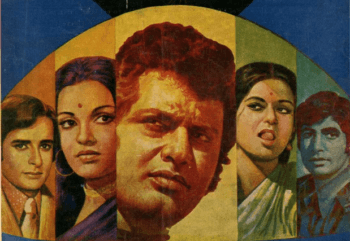
Roti Kapada Aur Makaan is a 1974 Hindi action drama written, directed, and produced by Manoj Kumar, who also stars in the film. The title reflects the necessities of life, a concept popularized by former Prime Minister Indira Gandhi in the late 1960s.
The film portrays Bharat-Manoj Kumar, who sacrifices his dream of becoming an engineer to support his struggling family after his father loses his job. Alongside him are his brother Vijay-Amitabh Bachchan, love interest Sheetal-Zeenat Aman, friend Tulsi-Moushumi Chatterjee, and wealthy businessman Mohan Babu-Shashi Kapoor. Roti Kapada Aur Makaan addresses profound economic struggles and social inequalities, depicting the dire conditions faced by the working class.
Its powerful narrative about the challenges of poverty and the quest for necessities resonated deeply with audiences, making it a landmark film in Hindi Cinema’s history.
Ta Ra Rum Pum – 2007
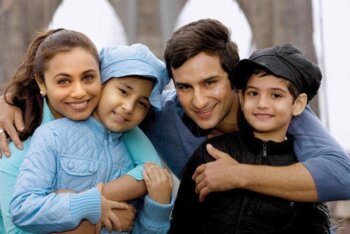
Ta Ra Rum Pum, directed by Siddharth Anand and written by Habib Faisal, is a Hindi sports drama starring Saif Ali Khan and Rani Mukerji. The film centres on Rajveer Singh, a race car driver whose career and finances deteriorate following an accident. Facing mounting debts and unemployment, Rajveer and his wife Radhika are forced to downsize their home and cut expenses drastically.
The family’s financial strain intensifies when their child falls seriously ill, compelling Rajveer to return to racing to secure the necessary funds for medical treatment. While primarily a sports drama, the film effectively portrays the severe economic struggles and personal sacrifices endured by individuals facing financial crises and their relentless pursuit of stability for their loved ones.
Ta Ra Rum Pum underscores the broader impact of economic struggles on personal decisions and family dynamics.
Naukri – 1954
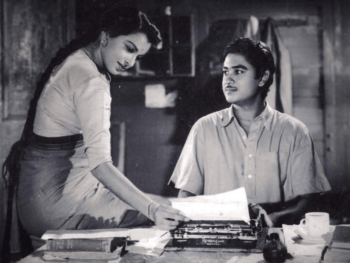
Naukri, directed by Bimal Roy and starring Kishore Kumar and Sheila Ramani, delves into the economic struggles of post-independence India. The film follows Ratan, a young man whose dream of securing stable employment to support his struggling family is met with relentless setbacks. As he faces repeated rejections in his job search, the film underscores the harsh economic realities and the deep emotional impact of unemployment on individuals and their families.
Kishore Kumar’s nuanced performance and Salil Chowdhury’s evocative music deepen the film’s portrayal of the quest for stability and dignity in the face of financial adversity.
Naukri effectively captures the economic struggles and emotional toll of unemployment, highlighting the impact on individuals and their families while showcasing the era’s broader financial hardships.
Gully Boy – 2019

Gully Boy, directed by Zoya Akhtar, is a musical drama that follows Murad-Ranveer Singh, a young Muslim man from a Mumbai slum, who channels his struggles and observations of inequality into his rap career. Despite his challenging life, including working as a chauffeur to make ends meet, Murad’s talent is discovered by local rapper MC Sher-Siddhant Chaturvedi and eventually by record producer Shweta Sky Mehta-Kalki Koechlin.
As Murad gains popularity and navigates relationships and personal challenges, including a tumultuous romance with Safeena-Alia Bhatt and escalating family tensions, he remains committed to his craft. His rise to fame is marked by his participation in a rap contest to open for Nas, where he gains confidence and finally confronts his detractors. The film highlights the economic and social struggles of its protagonist, reflecting the broader issues of poverty and ambition.
Gully Boy’s Murad’s journey, from the hardships of slum life to achieving his dreams, showcases the transformative power of music and self-expression amidst economic adversity.
Do Bigha Zamin – 1953
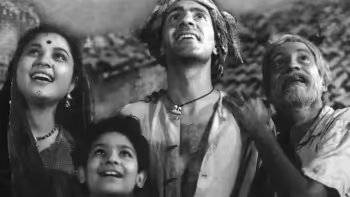
Do Bigha Zamin directed by Bimal Roy, is a poignant drama about Shambhu Maheto-Balraj Sahni, a farmer struggling to keep his two bighas of land amid a severe drought. When local landlord Harnam Singh-Jagdeep partners with businessmen to build a mill, Shambhu’s land becomes a hurdle. Pressured to sell his land to repay a debt he can’t afford, Shambhu faces exploitation and deception, culminating in a court ruling demanding an impossible repayment.
Desperate to save his land and support his family, Shambhu travels to Calcutta with his son, Kanhaiya-Ratan Kumar, in search of work. Their journey is marked by hardship and exploitation as they struggle to find employment in the city’s harsh economy. Shambhu’s efforts to earn money are thwarted by accidents and illness, and his family back home endures severe deprivation. As Shambhu and his family are eventually forced to return to their village, they find their land has been sold and a factory is being built on it.
The film highlights the brutal economic realities and systemic injustices faced by the impoverished, portraying their relentless struggle for survival and dignity amid economic adversity.
Baazaar – 2018
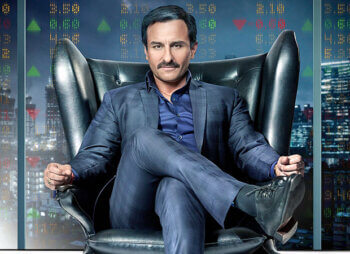
Baazaar is a 2018 Hindi-language financial thriller directed by Gauravv K. Chawla, with a screenplay by Parveez Sheikh and Aseem Arora. The film stars Saif Ali Khan, Rohan Vinod Mehra, Radhika Apte, and Chitrangada Singh.
Set against the dynamic world of the stock market, the movie delves into themes of ambition, greed, and the ruthless pursuit of wealth. It follows the journey of a novice trader who lands a job with a wealthy stockbroker in Mumbai. Using his charm and persuasive skills, he secures a position that soon propels him into a turbulent world of betrayal, cunning, and the high stakes of the financial world.
The film explores the economic struggles and ethical dilemmas faced by those navigating the treacherous waters of the stock market. It highlights the desperation of those driven by financial insecurity to make risky choices, often compromising their morals in the relentless chase for wealth.
Scam 1992 – The Harshad Mehta Story – 2020
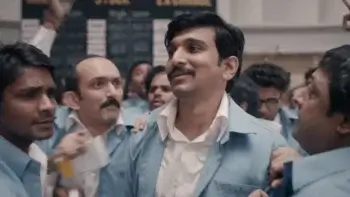
Scam 1992: The Harshad Mehta Story is a highly acclaimed Hindi-language financial thriller series on SonyLIV, directed by Hansal Mehta, with Jai Mehta as co-director. It chronicles the infamous 1992 stock market scam led by Harshad Mehta, adapted from The Scam: Who Won, Who Lost, Who Got Away by journalists Sucheta Dalal and Debashish Basu. Known for its in-depth portrayal and standout performances, the series delves into Mehta’s rapid rise and dramatic downfall, capturing the intricacies of financial manipulation.
Amid the allure of wealth and power, the series starkly reveals the economic struggles of a nation where many were caught in the wake of financial deception, illustrating the desperation and risk that came with dreams of economic stability.
In conclusion, Hindi films offer a compelling lens to explore the intricate economic realities that shape human lives. By depicting stories of struggle, ambition, and perseverance, these films remind us that while we all face the same economic landscape, our paths through it are uniquely personal and varied. Through these narratives, Hindi cinema does more than entertain — it prompts us to reflect on our own economic experiences, the decisions we make, and the societal forces that influence our futures.
Do read what has premiered at TIFF and iSAFF this year to discover more stories that illuminate these themes on a global scale.
Mehak Kapoor | Entertainment Editor
Author
Mehak Kapoor (@makeba_93) is an entertainment and lifestyle journalist with over a decade of experience in anchoring and content creation for TV and digital platforms. Passionate about storytelling and factual reporting, she enjoys engaging with diverse audiences. Outside of work, she finds solace i...





















